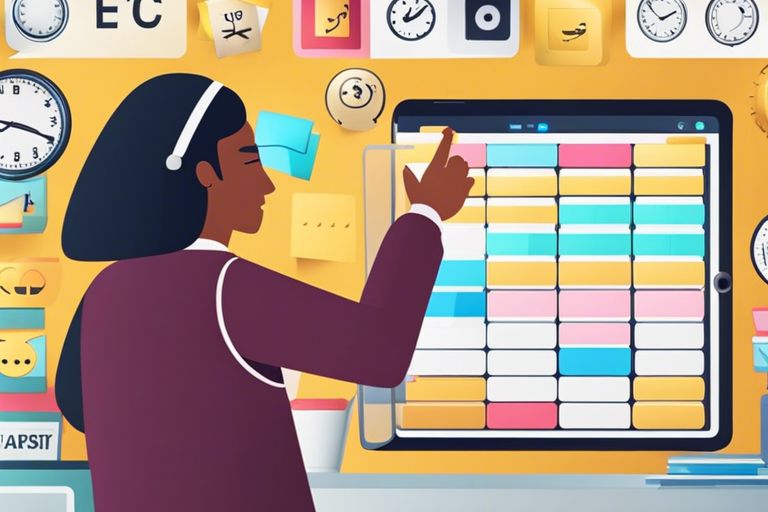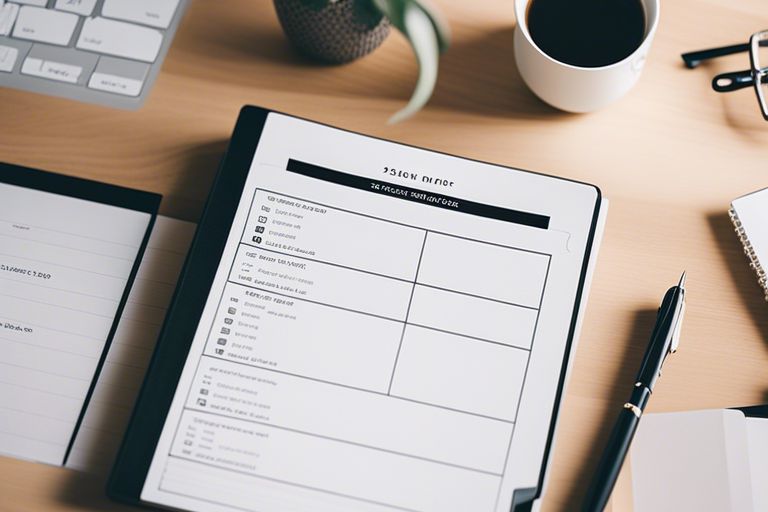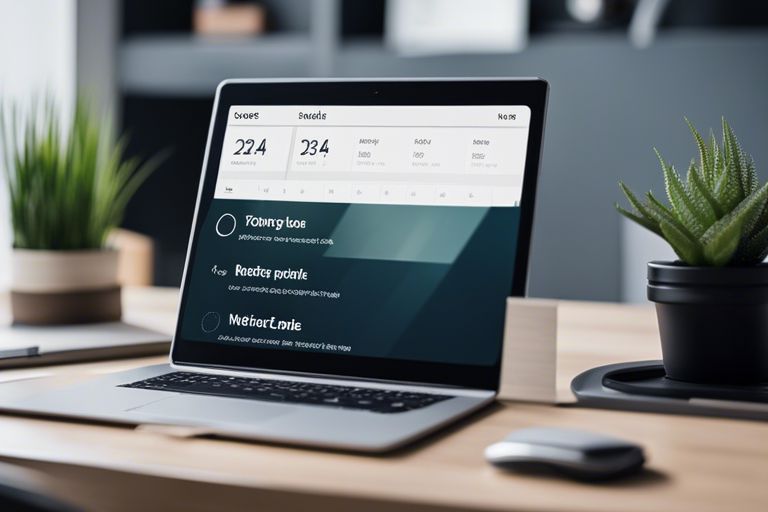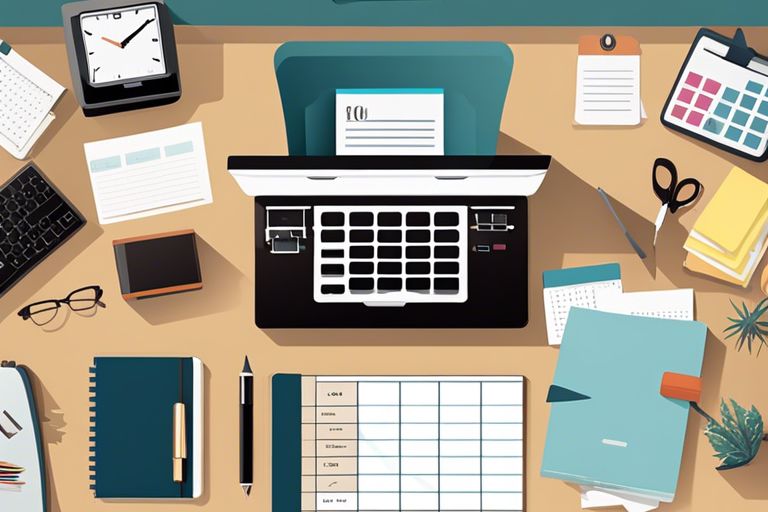The Importance of Effective Task Management
Efficient task management is crucial for individuals seeking to improve their productivity and organizational skills. By effectively managing tasks, individuals can enhance their ability to stay focused, meet deadlines, and achieve their goals. This section explores the benefits of task management and highlights the challenges often associated with traditional methods.
Benefits of Task Management
Implementing effective task management strategies offers numerous benefits that can positively impact both personal and professional life. Some key benefits include:
- Increased Productivity: Task management enables individuals to prioritize their work, ensuring that important tasks are completed on time. By organizing and structuring their workload, individuals can maximize their productivity and accomplish more in less time.
- Enhanced Organization: Task management allows individuals to maintain a clear overview of their responsibilities. By efficiently organizing and categorizing tasks, individuals can easily track their progress, identify priorities, and allocate resources effectively.
- Reduced Stress: Proper task management reduces stress levels by eliminating the feeling of being overwhelmed. Breaking down complex projects into smaller, manageable tasks provides a sense of control and enables individuals to tackle each task systematically.
- Improved Time Management: Task management enables individuals to allocate their time efficiently. By setting realistic deadlines and establishing timelines for each task, individuals can optimize their time and prevent procrastination.
- Better Decision Making: Task management helps individuals make informed decisions by providing a comprehensive view of their workload. By having a clear understanding of upcoming tasks and deadlines, individuals can make better choices regarding task prioritization and resource allocation.
Challenges of Traditional Task Management
Traditional task management methods, such as using paper-based to-do lists or relying on memory, come with inherent challenges that can hinder productivity and organization. Some common challenges include:
- Lack of Visibility: Traditional methods often lack the ability to provide a holistic view of tasks, deadlines, and progress. This can lead to missed deadlines, overlooked tasks, and difficulty in managing multiple projects simultaneously.
- Limited Collaboration: Traditional task management methods may not facilitate effective collaboration, especially in team settings. Sharing and updating paper-based lists or relying on email communication can result in miscommunication, duplication of efforts, and lack of transparency.
- Difficulty in Prioritization: Without a structured system, individuals may struggle to prioritize tasks effectively. This can lead to spending excessive time on low-priority tasks while neglecting critical ones, resulting in decreased productivity.
- Inefficient Tracking: Tracking progress and monitoring task completion can be challenging with traditional methods. Without a centralized system, individuals may find it difficult to keep track of completed tasks, pending items, and overall project status.
To overcome these challenges and harness the benefits of task management, individuals can turn to task management apps. These apps provide a digital solution to streamline and optimize task management processes. In the next section, we will explore the features and types of task management apps available to individuals seeking to improve their productivity and organization skills.
Introducing Task Management Apps
In today’s fast-paced world, staying organized and productive is crucial. This is where task management apps come into play. Task management apps are digital tools designed to help individuals effectively manage their tasks, stay organized, and boost productivity. Let’s explore what task management apps are and their key features.
What are Task Management Apps?
Task management apps, also known as task manager apps or to-do list apps, are software applications that assist individuals in managing their tasks and organizing their workloads. These apps serve as digital counterparts to traditional pen-and-paper to-do lists, offering a wide range of features and functionalities to streamline task management.
Task management apps provide a centralized platform where users can create, categorize, prioritize, and track their tasks. These apps often offer additional features such as reminders, notifications, collaboration tools, and integrations with other productivity tools. With task management apps, individuals can have a clear overview of their tasks, deadlines, and progress, enabling them to stay focused and accomplish their goals efficiently.
Key Features of Task Management Apps
Task management apps offer various features to enhance productivity and organization. While specific features may vary across different apps, here are some key functionalities commonly found in task management apps:
| Feature | Description |
|---|---|
| Task Creation | Easily create tasks, assign due dates, and set priorities. |
| Task Organization | Categorize tasks into different lists, projects, or categories for better organization. |
| Task Prioritization | Set task priorities to determine the order in which tasks should be completed. Check out our article on task prioritization methods for more insights. |
| Reminders and Notifications | Receive reminders and notifications to stay on top of deadlines and upcoming tasks. |
| Collaboration and Sharing | Collaborate with others by sharing tasks, delegating responsibilities, and tracking progress. This is particularly beneficial for task management for teams. |
| Integration with Other Tools | Integrate with other productivity tools such as calendars, email clients, and task management software for seamless workflow management. |
| Progress Tracking | Track the progress of tasks, mark them as completed, and monitor overall productivity. |
| Note-Taking | Add notes, attachments, or comments to tasks for additional context or instructions. |
| Customization | Customize the app’s interface, task views, and settings to suit individual preferences and workflows. |
Task management apps offer a range of functionalities designed to cater to different needs and preferences. It’s important to assess your requirements and consider the features that align with your workflow when selecting a task management app. For more information on effective task management strategies, check out our article on task management best practices.
By utilizing task management apps, individuals can streamline their task management process, enhance productivity, and achieve a greater sense of organization in their daily lives. Whether you’re an individual professional or part of a team, task management apps serve as valuable tools to help you stay on top of your tasks and accomplish your goals effectively.
Types of Task Management Apps
Task management apps come in various forms and offer different features to help individuals stay organized and productive. Let’s explore three common types of task management apps: simple to-do list apps, Kanban board apps, and calendar apps with task management features.
Simple To-Do List Apps
Simple to-do list apps are straightforward and user-friendly tools for managing tasks. These apps allow you to create and organize your tasks in a list format. You can add due dates, assign priorities, and mark tasks as complete. Some to-do list apps even offer additional features like subtasks, labels, and reminders to enhance your task management experience.
To-do list apps are ideal for individuals who prefer a minimalist approach to task management. They provide a clear and concise overview of your tasks, allowing you to focus on what needs to be done. Whether you’re managing personal tasks or collaborating with a team, these apps can help you stay organized and track your progress.
Kanban Board Apps
Kanban board apps are based on the Kanban methodology, a visual system that emphasizes workflow management. These apps use boards with columns representing different stages of a task, such as “To Do,” “In Progress,” and “Done.” Tasks are represented as cards that can be moved across the board as they progress.
Kanban board apps offer a highly visual and intuitive way to manage tasks. They provide a clear view of your workflow, making it easy to identify bottlenecks and track the status of each task. These apps are particularly useful for individuals or teams working on projects with multiple stages or complex workflows.
Calendar Apps with Task Management Features
Calendar apps with task management features combine the functionality of a traditional calendar with task management capabilities. These apps allow you to schedule and organize your tasks alongside your events and appointments. You can set due dates, allocate specific time slots for tasks, and receive reminders.
Calendar apps with task management features provide a holistic view of your schedule and tasks, helping you effectively manage your time. By integrating your tasks with your calendar, you can easily prioritize and allocate time for important tasks. These apps are especially beneficial for individuals who prefer a time-based approach to task management.
When choosing a task management app, consider your specific needs and preferences. Assess whether you prefer a simple list format, a visual Kanban board, or a calendar-based approach. Additionally, consider the features that are important to you, such as collaboration capabilities, integration with other tools, and mobile accessibility.
Remember, the goal of a task management app is to streamline your workflow and improve productivity. Experiment with different apps and find the one that aligns with your personal or professional needs. For more insights on effective task management strategies, check out our article on task management best practices.
Choosing the Right Task Management App
When it comes to selecting a task management app, it’s important to assess your specific needs and consider various factors to ensure the app aligns with your preferences and requirements. Here are two key aspects to consider during the app selection process.
Assessing Your Needs
Before diving into the vast sea of task management apps, take a moment to evaluate your unique needs and goals. Consider the following questions:
- Task Complexity: Do you primarily deal with simple to-do lists, or do you require more advanced features like subtasks, tags, or task dependencies?
- Collaboration: Will you be working individually or as part of a team? If collaborating, do you need features such as shared task lists, file attachments, or commenting capabilities?
- Integration: Do you rely on other productivity tools and platforms? Look for task management apps that integrate seamlessly with your existing tools, such as calendars, email clients, or project management software.
- Mobility: Do you need a task management app that is accessible across different devices and platforms, such as mobile phones, tablets, or desktop computers?
- User Interface: Are you looking for a simple and intuitive interface, or do you prefer a more feature-rich and customizable app? Consider your personal preferences and comfort level with technology.
By assessing your needs, you can narrow down the pool of task management apps that are most likely to meet your requirements. For more information on task management strategies and tools, check out our articles on task management software and task management tools.
Considerations for App Selection
Once you have a clear understanding of your needs, it’s time to consider a few additional factors that can help you make an informed decision:
| Consideration | Description |
|---|---|
| Price | Evaluate the cost structure of the app, such as one-time purchase, subscription-based, or freemium models. Take into account any potential limitations or restrictions in the free version. |
| User Reviews | Read reviews and ratings from other users to gain insights into the app’s performance, reliability, and user experience. Look for apps that have consistently positive feedback and address specific concerns you may have. |
| Support and Updates | Check if the app offers reliable customer support channels, such as email or live chat, in case you encounter any issues. Additionally, consider the frequency of updates and the responsiveness of the app’s development team to ensure ongoing improvements and bug fixes. |
| Security and Privacy | Prioritize apps that provide robust security measures, such as encrypted data transmission and storage. Ensure that the app complies with privacy regulations and does not collect or share your personal information without consent. |
| Learning Curve | Consider the learning curve associated with the app. Look for user-friendly interfaces and intuitive features that align with your comfort level and minimize the time required to adapt to the app. |
| Trial Period | Take advantage of trial periods or free versions offered by task management apps. This allows you to test the app’s functionality and determine if it meets your needs before committing to a paid subscription. |
By carefully considering these factors, you can make an informed decision when choosing a task management app that suits your specific requirements. Remember, the goal is to find an app that enhances your productivity and organization without overwhelming you with unnecessary features.
Tips for Maximizing Productivity with Task Management Apps
Task management apps can be powerful tools for boosting productivity and staying organized. To make the most of these apps, here are some tips to maximize your productivity:
Setting Priorities
One of the key benefits of task management apps is the ability to prioritize your tasks effectively. When using a task management app, it’s important to assign priorities to your tasks based on their importance and urgency. This helps you focus on the most critical tasks and ensures that they are completed in a timely manner.
Here are some common priority levels you can use in your task management app:
| Priority Level | Description |
|---|---|
| High | Tasks that are urgent and have a significant impact on your goals or deadlines. |
| Medium | Tasks that are important but can be flexibly scheduled within a reasonable timeframe. |
| Low | Tasks that are not time-sensitive and can be addressed when you have available time. |
By setting priorities for your tasks, you can avoid feeling overwhelmed and ensure that you tackle the most important tasks first. Additionally, it helps you stay focused and organized, leading to increased productivity.
Breaking Down Tasks
Complex tasks can often seem overwhelming, making it difficult to get started. However, with a task management app, you can break down larger tasks into smaller, more manageable subtasks. Breaking down tasks allows you to tackle them step by step, making them less daunting and more achievable.
When breaking down tasks, consider the following:
- Identify the key steps or milestones required to complete the task.
- Determine dependencies between tasks to establish a logical sequence.
- Set realistic deadlines for each subtask to ensure progress and accountability.
By breaking down tasks into smaller subtasks, you can maintain momentum and track your progress more effectively within your task management app.
Utilizing Notifications and Reminders
Task management apps often offer notifications and reminders to help you stay on top of your tasks. Take advantage of these features to maximize your productivity.
Set up notifications and reminders for important deadlines, milestones, or upcoming tasks. This ensures that you are aware of what needs to be done and helps you stay organized. Whether it’s a pop-up notification, an email reminder, or push notifications on your mobile device, make sure to configure these settings to suit your preferences and workflow.
Additionally, consider using recurring reminders for tasks that need to be completed regularly. This can be especially helpful for tasks that occur on a daily, weekly, or monthly basis.
By leveraging notifications and reminders, you can stay focused, meet deadlines, and avoid procrastination.
Remember, task management apps are tools to support your productivity and organization. Experiment with different features and techniques to find the best approach that works for you. By setting priorities, breaking down tasks, and utilizing notifications and reminders, you can enhance your productivity and accomplish more with the help of task management apps.








